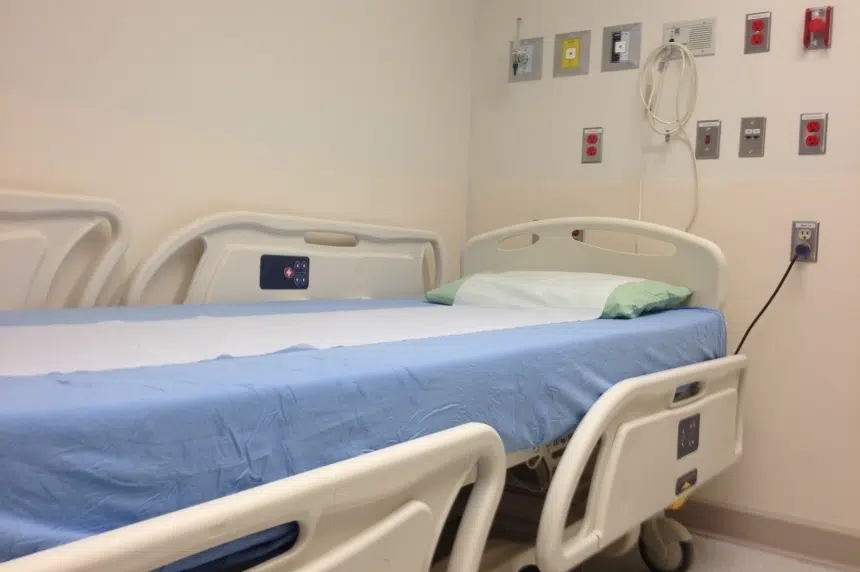The CEO of the Saskatchewan Health Authority said Thursday the province’s health-care system is in critical condition.
Scott Livingstone reaffirmed the authority will do what it can to handle the rising cases of COVID-19 in the province and the strain those cases will put on the health-care system, but he noted things are getting extremely difficult.
“We will be tested as an organization like we have never been tested before in the upcoming weeks,” Livingstone said during a media conference at which the provincial government announced public health measures to combat COVID’s fourth wave in Saskatchewan.
Livingstone said Saskatchewan’s daily case numbers will likely rise to at least the 600s.
“If nothing was put in place, absolutely in October we certainly could hit peaks,” said Livingstone, noting that could have meant new cases hitting 800 to 1,000 daily.
The Ministry of Health reported 439 new COVID cases on Thursday, the fifth straight day the daily total has exceeded 400. There have been 6,201 cases reported in September.
Hospitalizations also have risen during the month. As of Thursday, 218 COVID patients were in Saskatchewan health-care facilities, with 48 in intensive care. There were 134 people with COVID in the province’s hospitals on Aug. 31.
During a media conference last Friday, Livingstone said slowdowns in some services would be necessary so the health-care system could handle the rising cases.
Non-critical and elective services were to be reduced to ease the pressure on the system and to allow the SHA to move staff members from some areas to units that care for COVID patients.
The ultimate goal is to have 255 acute-care beds and 80 ICU beds for COVID patients.
“By looking at what’s happened over the last 10 days, we are actively looking at other major slowdowns to help again increase both our inpatient beds and ICU capacity across the province,” Livingstone said Thursday. “Over the next few weeks, we are concerned about the volume of cases that will come in.
“As we talked about last Friday, it’s important to remember that cases we see today coming into hospitals and ICUs are from people who were infected two weeks ago, so there’s very little we can do today to stop that from happening other than building capacity to support our staff and using tools like slowdowns.”
To date, Livingstone said, 156 services have been affected.
“We will be bringing forward a number of other slowdown options in the days to come because we already know that we do not have enough inpatient capacity built today to accommodate the cases that we are going to see,” he said.
In earlier stages of the pandemic, the SHA set up field hospitals at Evraz Place in Regina and Merlis Belsher Place in Saskatoon to handle overflow. Neither was ever used.
In June, both field hospitals were decommissioned and Livingstone said Thursday they won’t be recreated.
Besides, that’s not the problem.
“It’s not equipment or beds that’s our concern,” Livingstone said. “It’s actually skilled staff to care for those patients and it’s why we will be looking at all provincial resources across the SHA.”
And those staff members will have tough decisions to make when it comes to caring for patients.
“Although I would say we haven’t formally entered into a phase where we’re using the triage protocol, each and every single day, we are making decisions … with clinicians on whether or not surgeries go forward because we don’t have available ICU beds for patients to care for them,” Livingstone said.
Dr. Saqib Shahab, the province’s chief medical health officer, added Thursday that if current trends continue, COVID patients won’t have an ICU bed and neither will non-COVID patients who need intensive care. As well, people who need urgent surgeries will see those operations delayed.
“Things are at a critical juncture, but the solutions are pretty simple: Get vaccinated if you haven’t, get your second dose if you didn’t get around to to getting it, and wear a mask and practise all the other measures we’ve been doing in the past,” Shahab said.







